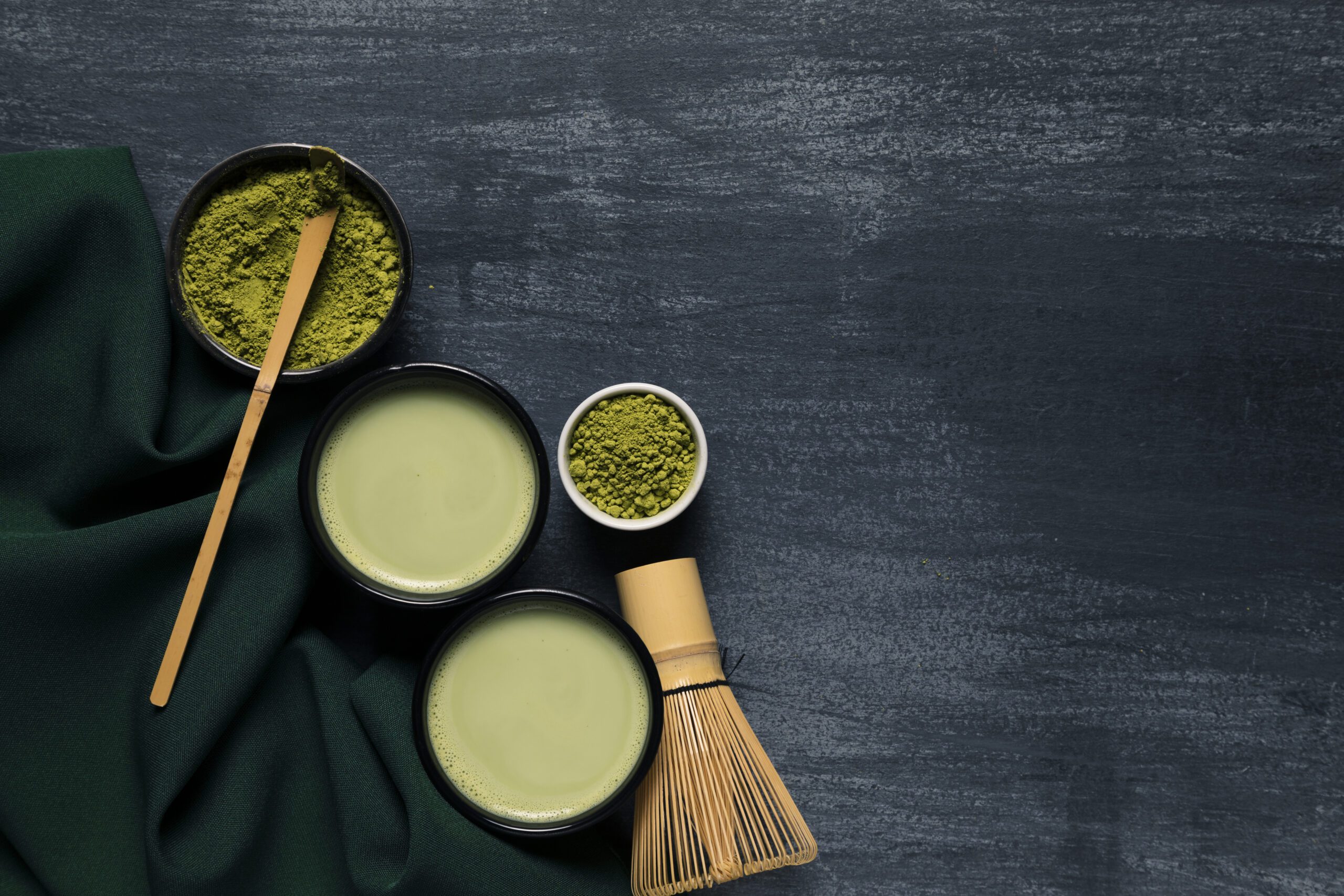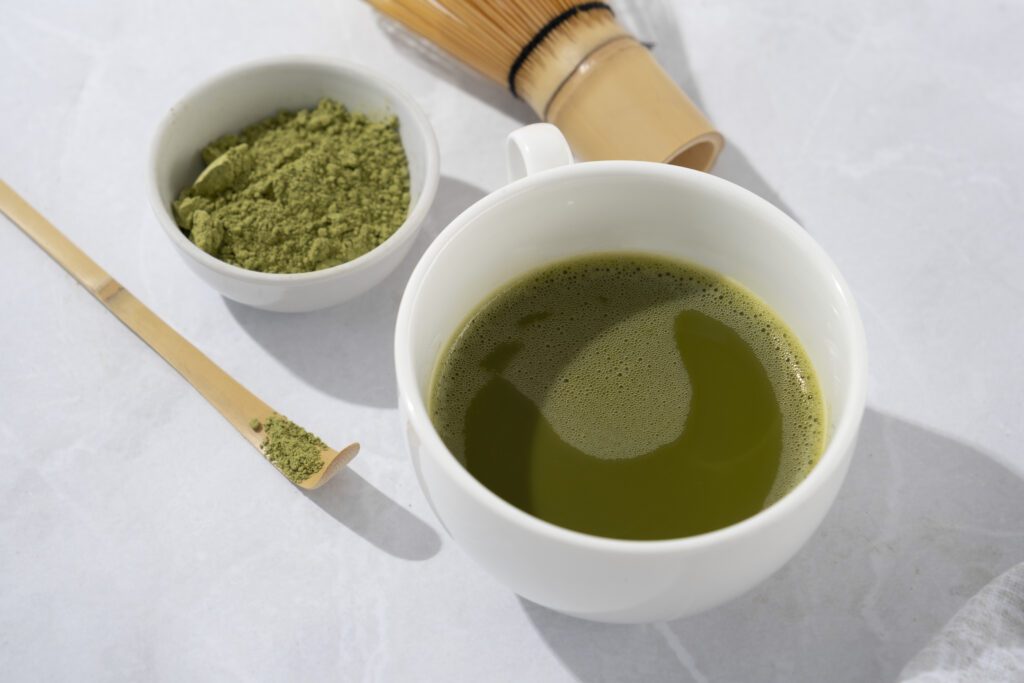We’ve all been told about the green tea. The tea is also popularly claimed to reduce fat, improve the brain, and even boost your heart health. But what people usually think is that green tea will treat cancer. A concentrated green tea, matcha green tea, also comes into this argument. Matcha and green tea are also purported to inhibit the expansion of cancer cells, but are they?
In this article, we will explain the scientific connection between “matcha green tea and cancer”. This article will not only provide facts but will also try to break myths. If you also consider green tea a “magic cure”, then you must know the truth.
Table of Contents
Basic Knowledge of Green Tea and Matcha Green Tea
Before we know how cancer works in tandem with green tea, we need to first find out what green tea and matcha green tea are and what makes them special.
The conversation about matcha green tea and cancer often highlights its concentrated antioxidant content.
What is Green Tea?
Green tea is a herbal tea extracted from the leaves of Camellia sinensis. It is much more unprocessed than black tea and oolong tea, thus, rich in antioxidants and nutrients. Green tea is boiled, and mildly flavored.
Green tea has antioxidants called catechins that prevent free radicals. These antioxidants shield body cells from damage and oxidative stress.
What is Matcha Green Tea?
Matcha green tea is a special type of green tea which is in finely powdered form. To make this, the leaves are grown in shade to have high chlorophyll levels. Then these leaves are dried and ground.
Matcha green tea is different from regular green tea because the whole leaf is consumed. Hence it contains antioxidants, particularly Epigallocatechin Gallate (EGCG), in very high concentrations.
Nutritional Composition
Green tea and matcha Green tea is known for its antioxidants, but matcha leads in this department. One cup of matcha provides as many antioxidants as 3 cups of green tea. It is full of catechins, polyphenols, and vitamins.
What is cancer?
Cancer is a medical condition in which the body’s cells grow uncontrollably. These cells form a tumor and can also spread to other parts of the body (metastasis).
One such area is the matcha green tea and cancer link, including how the antioxidants from the tea can inhibit oxidative stress and prevent DNA damage from free radicals. Cancer can be of many types, such as:
- Breast Cancer
- Prostate Cancer
- Lung Cancer
- Colorectal Cancer
- Skin Cancer
Common Causes of Cancer
There are many factors behind cancer. Some common causes are:
- Smoking
- Alcohol consumption
- Poor diet
- Genetic predisposition
- Radiation exposure
- Viruses, such as HPV and Hepatitis B
Oxidative Stress And Free Radicals Role
Oxidative stress is a major factor in cancer development. When free radicals (unstable molecules) damage cells, their DNA is damaged. These mutations cause the growth of cancer cells. This is why antioxidants, which neutralize free radicals, can be very helpful.
Antioxidant Properties of Green Tea
Green tea is special because of its high antioxidant content, the most important of which are:
Epigallocatechin Gallate (EGCG)
EGCG is a powerful antioxidant that works against free radicals. It helps prevent the growth of cancer cells and promotes apoptosis (programmed cell death).
Research on green tea and cancer
Studies indicate that green tea could help prevent cancer. It was stated in the Cancer Prevention Research journal that green tea extract decreased the size of tumors in individuals with prostate cancer. Separate research suggests it might as well cut down the chances of breast and colorectal cancer. The influence they might have in actual situations might not be as significant.
When it comes to matcha green tea and cancer, studies point out that it works more effectively against oxidative stress than regular green tea because of the high concentration of nutrients.
Matcha Green Tea And Cancer

Matcha is more potent than regular green tea.
Benefits of Matcha
- Matcha’s high EGCG content significantly reduces oxidative stress.
- It is loaded with polyphenols that inhibit inflammatory signals that cause cancer.
- Matcha’s chlorophyll leaves aid detoxification to remove toxins from the body.
The connection among matcha green tea and cancer keeps to benefit interest as more studies look at its effectiveness in slowing most cancers cell growth.
Scientific Studies on Matcha And Cancer
A study published in Molecular Nutrition & Food Research found that matcha green tea significantly reduces the proliferation (growth) of cancer cells. Matcha was shown to have a positive effect on breast and liver cancer cells. But these studies were conducted on a limited scale and their results cannot be generalized.
Myths vs. Facts
So far we’ve seen that green tea and matcha have some scientific benefits. But is it a “cure” for cancer?
The myths surrounding matcha green tea and cancer often exaggerate its benefits. For example, while matcha may lower the risk of cancer, it is not a standalone cure.
Myths
1. “Green tea can completely cure cancer.”
The role of green tea is limited to reducing the risk, it is not a replacement for treatment.
2. “Drinking too much green tea reduces the risk of cancer to zero.”
Overconsumption can cause side effects. Moderation is the best.
Facts
1. Green tea antioxidants help slow down the growth of cancer cells, but it is not a cure.
2. Clinical trials show mixed results. Medical advice is always necessary for cancer treatment.
Practical Benefits of Green Tea for Cancer Prevention

Some practical benefits of green tea that help in cancer prevention are:
1. Boosting the immune system
Catechins activate immune cells, which fight against diseases.
2. Detoxification
Matcha green tea helps flush out toxins from the body. Its regular consumption supports the liver.
3. Reducing inflammation
Chronic inflammation is a major cause of cancer development. Green tea helps by blocking inflammatory path.
The link between matcha green tea and cancer explains these therapeutic qualities in a way that’s relevant to those looking for alternative remedies (prevention, not treatment).
Risks And Limitations
Side Effects of Overconsumption
- Excess green tea can cause caffeine-related problems like insomnia, headache, and upset stomach.
- Excess catechins also reduce iron absorption, which can cause anemia.
Medical Conditions
- Pregnant and breastfeeding women should consume green tea in limited quantities.
- People with kidney and liver issues should avoid it.
How to incorporate green tea into your lifestyle?
1. Start your morning with matcha : A warm cup of matcha can kick-start your metabolism.
2. Use it in Smoothies and Desserts : Include matcha powder in smoothies or baking recipes.
3. Pair it with your diet : The benefits of green tea are maximized only when you follow a balanced diet.
4. Brewing Tips : Keep the water temperature at 70-80°C so that the flavor and nutrients of the tea remain intact.
Conclusion
Green tea and matcha are helpful for cancer prevention, but not cure. t is a natural drink that boosts health and curbs oxidative stress. Yet never forget, there’s no herbal medicine to replace medicine.
Drink green tea regularly but with a balance. Science is changing this, and more research will be revealed.
FAQs
Can Green Tea Completely Prevent Cancer?
No, green tea can help in cancer prevention but cannot completely prevent it.
Is Matcha Better Than Regular Green Tea?
Yes, the antioxidant level of matcha is higher than regular green tea, which makes it more effective.
How much Green Tea should I drink in a day?
Consuming 2-3 cups of green tea or matcha in a day is safe and beneficial.
Does Matcha have side effects of Green Tea?
Yes, overconsumption can cause stomach upset, headache, and insomnia.
Can Green Tea be a replacement for chemotherapy?
Not, green tea is a supportive remedy and cannot be a replacement for chemotherapy.









